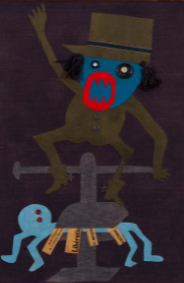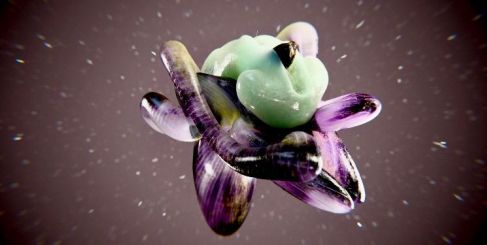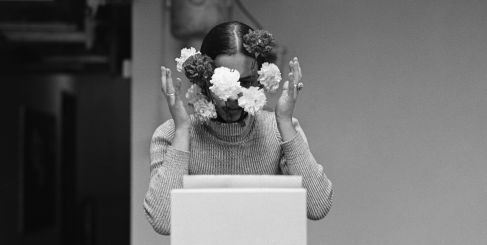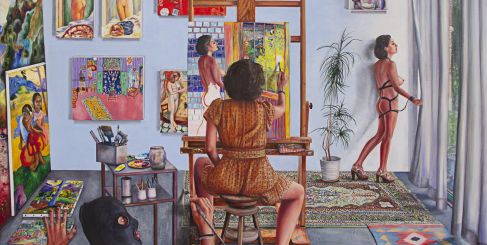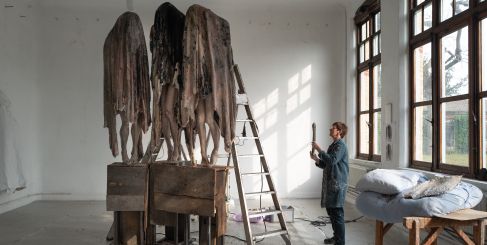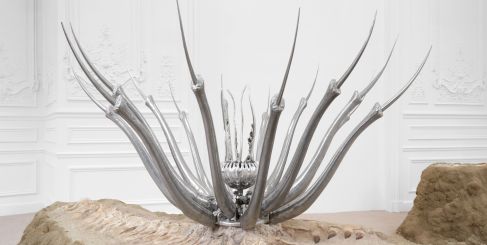News
>>>
25.07.2022
AT MO.CO. A POLITICAL EXHIBITION, "MUSEUMS IN EXILE", FROM 11.11.22 TO 05.02.23 IN MONTPELLIER
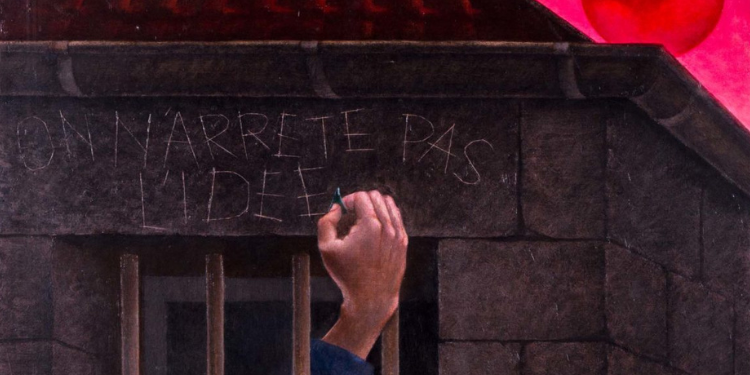
The MO.CO. will host an exhibition dedicated to collections in exile from November 11 to February 5, 2022. Its ambition is to address the key role of cultural goods in the construction of an identity by and for torn communities. Why and how do citizens decide to create collections in times of conflict? Uprooted, the works collected by artists, curators, or enthusiasts take on a symbolic value of national unity and resistance beyond their artistic value.
The exhibition will explore the unique history of three singular collections: that of the Salvador Allende International Museum of Resistance (MIRSA), housed at the Museo de la Solidaridad Salvador Allende in Chile; Ars Aevi, the collection of the Museum of Contemporary Art in Sarajevo; and the most recent, the collection assembled for the future National Museum of Modern and Contemporary Art in Palestine, currently housed at the Museum of the Arab World Institute in Paris.
Three collections, three stories, three case studies on three continents: the origin and dissemination of these collections were fundamentally acts of resistance, solidarity and hope in the face of the chaos and violence that each of these territories has experienced or continues to experience.
In 1972, Salvador Allende opened a Museum of Solidarity, which was dismantled and looted by Pinochet after his 1973 coup d'état, precipitating the mass exile of artists. The artists gathered together and, from their various refuges, decided to create a collection to pay homage to Allende and to continue his action, to denounce the dictatorship and to alert the international community. These works have now returned to the Museo de la Solidaridad Salvador Allende in Santiago de Chile.
In Sarajevo, the civil war and the atrocities of the four-year siege, from 1992 to 1996, caused the death of more than 13,000 people, the destruction of the National Library and the Olympic Games Museum. A strong cultural resistance
was organized, and the Ars Aevi association mobilized directors of institutions, artists and curators to organize exhibitions throughout Europe. The works will be given to Sarajevo, as a symbol of resistance to violence, of international solidarity in spite of everything.
Finally, the constitution of a collection for Palestine emerges rather quickly in the complex history of the country. Although the Palestinian National Authority was strengthened in 1992-93 by the Oslo Accords, Palestine is not today recognized by the United Nations as an autonomous state. Represented at UNESCO by a delegation, the Palestinian State has decided to establish a collection of works for its citizens which will become the permanent collection of its future National Museum of Modern and Contemporary Art.
A selection of works will allow us to discover each of these three singular collections, mixing international artists, who have all chosen to give out of solidarity, testimony, or conviction.
The presentation of each of these collections will be preceded by a historical context, and an introduction that will address the issue of heritage in times of conflict. In 1937, Guernica became a masterpiece and standard-bearer in the fight against civilian bombing; in 1936, the Prado had to evacuate its collections under the threat of Franco's bombs; and in 1939 it was the turn of the Louvre Museum, followed by provincial museums, including the Fabre Museum in 1942. Finally we will evoke the situation in Ukraine, where artists continue to create despite the shooting and the bombs, seeking means of existence and visibility.
In addition to highlighting heritage as a collective symbol to be protected, and the act of creation as an act of resistance and hope, Museums in Exile offers the opportunity to look back at the work of more than 80 artists of 30 different nationalities.
Under the artistic direction of Numa Hambursin, executive director of MO.CO.
Curator of the exhibition
Vincent Honoré, director of exhibitions
Pauline Faure, curator
assisted by Ashley Marsden
Scenography
Maud Martinot ; Xavier Morlet

